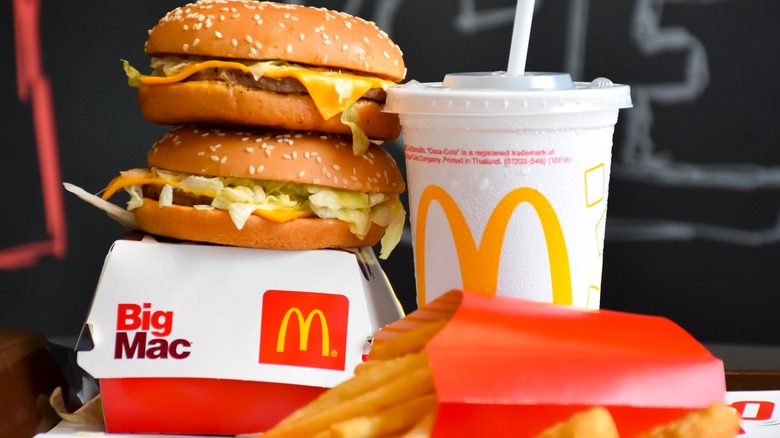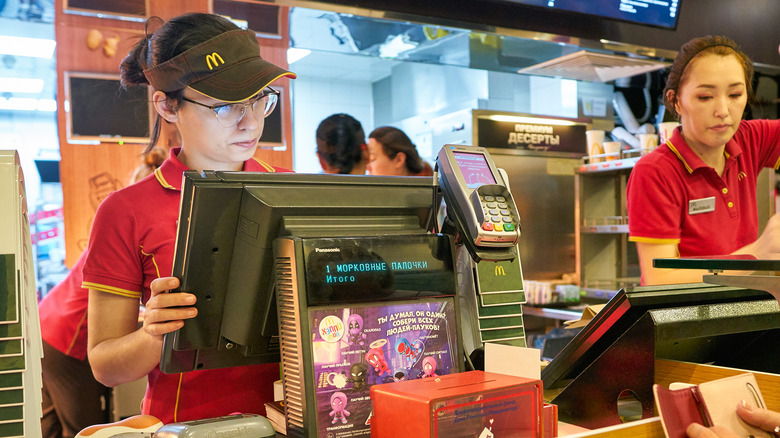The President Of McDonald's Throws Major Shade At California's Fast Food Law
California bill AB 257, also known as the Fast Food Accountability and Standards Recovery Act, or FAST Recovery Act, was signed into law in September 2022 (via Open States). The bill would create a 10-person committee with the purpose of defining standards across the fast-food industry regarding minimum wage, working hours, and workplace conditions. Standards and enforcement would only apply to franchises with a minimum of 100 locations.
From the perspective of unions, this California law could change quick-service restaurants forever. It is a huge win for workers because it allows for something adjacent to sectoral bargaining, a type of negotiation that allows for collective bargaining at the government level (via Investopedia). Having a committee representing the interests of a whole industry allows for labor unions and workers to negotiate more broadly rather than just with individual businesses.
Major fast food businesses, including some that have been accused of allegedly illegal union busting, as well as groups such as the National Restaurant Association and Save Local Restaurants donated millions of dollars to support a referendum against the bill, notes The Los Angeles Times. Enough signatures were gathered to pause the bill going into effect until a public vote in November 2024. Despite the setback, President of Service Employees International Union Mary Kay Henry affirmed, "No corporation is more powerful than half a million workers joining together to demand a seat at the table," per The Los Angeles Times.
McDonald's is not a fan of the new bill
Unsurprisingly, fast food corporations such as Starbucks, In-N-Out, Chipotle, Chick-Fil-A, and McDonald's are concerned, reports The Los Angeles Times. According to Business Insider, the FAST Recovery Act could potentially raise the minimum wage of fast food workers up to $22 an hour. The Massachusetts Institute of Technology living wage calculator notes that a living wage in California for a single person with no dependents should be about $21.82 an hour.
The president of McDonald's, Joe Erlinger, released an open letter in opposition to the bill saying that California is "looking for ways to raise prices, drive away more businesses and destroy growth" (via McDonald's). He went on to claim that the FAST Recovery Act is a way for unions to sneak into government processes and makes it unnecessarily challenging for small businesses to run effectively. He even disputed the validity of the information the bill is based on.
Erlinger, who when last reported, made $7.4 million dollars in a single year, insisted that he is in favor of "responsible increases to minimum wage."

